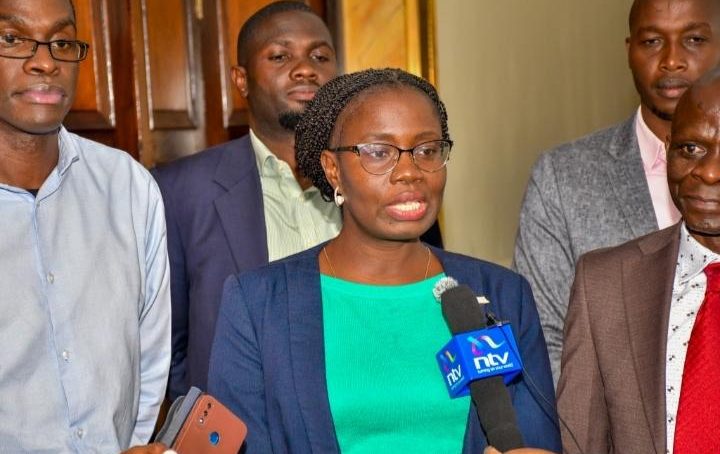
Poor road conditions, driver fatigue and failure to comply with licensing rules are the leading causes of petroleum and Liquefied Petroleum Gas (LPG) tanker accidents in the country, Energy and Petroleum Regulatory Authority (EPRA) reveals.
According to the authority, transport of petroleum products remains one of the most critical but hazardous segments of Kenya’s energy value chain, exposing communities, drivers and the environment to immense risks when safety regulations are ignored.
A study by EPRA, which used data from 2021 to 2024, provides worrying insights into the gaps in safety compliance. Out of 40 sampled and investigated tanker accidents, only 10 trucks were fitted with GPS tracking devices, while 35 lack journey management plans.
In addition, seven of the trucks were driven by drivers without valid EPRA licences, in direct breach of transportation licence requirements.
Further, the report points out that three major factors consistently contribute to accidents involving petroleum and LPG tankers, including poor road conditions such as sag curves, fatigue among drivers who on average had actively driven for 5.3 hours before the accident against the recommended four hours, and widespread non-compliance with licensing rules and regulations.
Speaking during a sensitisation workshop in Nairobi, EPRA Deputy Director of Mid and Downstream Petroleum Stella Opakas disclosed that the findings highlighted the urgency of addressing runaway accidents that continue to plague the petroleum transport sector.
“There is an urgent need to tame runaway accidents involving petroleum and LPG tankers. This workshop aims to promote compliance with existing regulations and licensing requirements for tankers,” Opakas reiterated.
The sensitisation programme brought together more than 120 bulk LPG and petroleum tanker drivers from around the country with the sessions focusing on safety, compliance and practical steps to reduce risks during transportation of hazardous products.
Additionally, drivers were taken through licensing rules, risk management strategies and requirements that govern the safe handling of petroleum and LPG. Opakas revealed that beyond the tragic loss of life, tanker accidents resulted in massive economic costs, destruction of property and severe environmental harm.
Similarly, she added that spills and explosions expose communities to fire outbreaks, toxic fumes and pollution of water and soil, which often take years to remediate.
The deputy director outlined that enforcing licensing rules, use of GPS tracking systems and implementation of journey management plans are key measures that cannot be compromised.
“These measures are not designed to burden transporters but to protect lives, property, and investments,” she said.
During the workshop, participants were also introduced to the newly gazetted Petroleum (Licensing of Petroleum Road Transportation Business) Regulations, 2025 and Petroleum (Liquefied Petroleum Gas) Regulations, 2025, two frameworks which provided detailed guidance on safety standards, licensing requirements, and environmental safeguards for operators in the petroleum and LPG transportation sector.
These regulations, according to EPRA, are designed to address long-standing challenges such as use of unlicensed drivers, illegal depots, lack of journey planning and poor enforcement of vehicle safety standards.
Opakas reaffirmed that the authority is committed to continuous training, inspections and monitoring to ensure that operators comply with safety requirements. She at the same time urged transporters to adopt a culture of compliance, noting that accidents are preventable when operators and drivers commit to safe practices.
“Compliance is the first line of defence against disasters. We encourage transporters to view safety not as a cost but as an investment in protecting their workers, the public, and the environment,” Opakas explained.
She said petroleum and LPG remained essential to Kenya’s economy but stressed that transport of these products must not compromise human life or environmental safety. For this reason, EPRA is calling for mandatory GPS systems to monitor routes and strict journey management to regulate driving hours and rest stops.
Further, Opakas acknowledged that drivers often face pressure to cover long distances without breaks, which contributes to fatigue-related accidents. She said enforcing structured journey plans and scheduled rest is a vital step in reducing risks.
The deputy director observed that non-compliance with safety rules not only endangers lives but also exposes operators to heavy penalties, financial losses and reputational damage as she called on drivers to act responsibly and for transport companies to support safe driving practices.
“Accidents are preventable if transporters, drivers, and regulators work together. Our role as EPRA is to ensure the rules are clear and enforced, but drivers and businesses must also commit to safe practices on the roads,” she said.
Opakas mentioned that the Authority also calls for greater awareness among the public on the risks posed by petroleum and LPG tankers citing that in many cases, accidents are worsened by motorists who disregard traffic rules when overtaking or tailgating fuel tankers, as well as by crowds that gather at accident scenes. She noted that such behaviour puts lives in danger and complicates rescue efforts.
Meanwhile, the EPRA official pointed that safer transport of petroleum and LPG products requires a collective approach, with drivers, transport companies, regulators and road users playing their part in reducing risks.
- A Tell Media / KNA report / By Wendy Sheilla and Lucy Mwende







